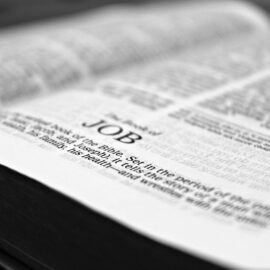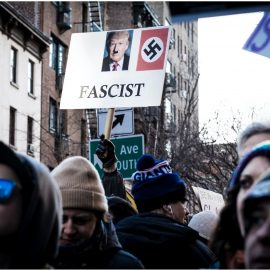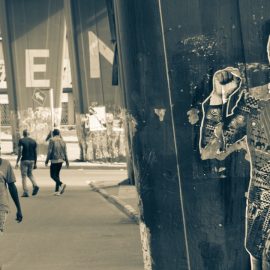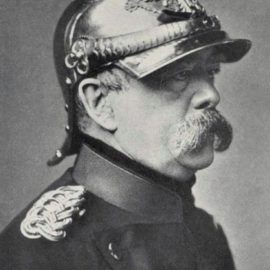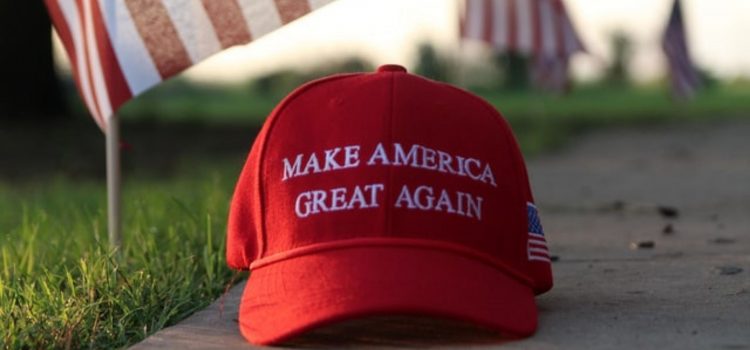
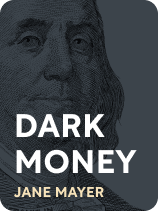
This article is an excerpt from the Shortform book guide to "Dark Money" by Jane Mayer. Shortform has the world's best summaries and analyses of books you should be reading.
Like this article? Sign up for a free trial here.
How did the Koch brothers impact the 2016 presidential election? Did they explicitly back Trump?
In Dark Money, award-winning journalist Jane Mayer explores the influence that the Koch brothers have had on American politics for decades. She includes a discussion of the 2016 election of Donald Trump.
Keep reading for a quick overview of the direct and indirect connections between the Koch Brothers and Trump.
The Koch Brothers & Trump
In 2016, the Kochs weren’t backing any presidential candidate. Instead, they were focusing on maintaining their hold on both houses of Congress and further cementing their hold on governments at the state and local levels, which they accomplished. According to Mayer, as far as Donald Trump, the Koch brothers were surprised by the nomination—Trump gained popularity by painting himself as a self-made billionaire who, unlike his opponent Hillary Clinton, was not reliant on other people’s wealth.
Leading up to the election, the Kochs seemed to oppose him. But, after his victory, Trump put together a transition team full of corporate lobbyists, many of whom had ties to the Kochs. Mayer notes that, though Trump had won on the claim that he would “drain the swamp,” or rid the government of individuals who were devoted only to enhancing their wealth, he immediately began adding such individuals, appointing people to positions of power in which they could pursue personal financial interests.
As a whole, Mayer explains, the Trump administration began implementing policies that aligned closely with the Kochs’ ideals, promoting fossil fuels, decreasing government regulations, and promising to dismantle the EPA, among other things. Though it remained unclear how much direct influence the Kochs would be able to wield over Trump, what was clear was that their wealth would continue to have a heavy influence on the nation’s politics for the foreseeable future—even after the Kochs’ deaths, as directed in their wills.
| Radicalism Gone Wild: Did the Kochs Help Elect President Trump? The Kochs weren’t the only ones surprised by Donald Trump’s 2016 victory, as polls leading up to the election favored a strong win by Hillary Clinton. There are many theories as to what led to his win, including the idea that Clinton’s lead in the polls caused some citizens to not bother to vote because they assumed she’d win easily. Others have suggested it was because neither Clinton nor Trump was an appealing candidate to most people, noting that third-party votes in 2016 were triple what they were in 2012. Charles Koch himself likened the choice between the candidates to a choice between cancer and a heart attack. Some experts also suggest that Trump won by capitalizing on the momentum of the Tea Party Movement, by promoting fake news and misinformation, and by tapping into fringe conspiracy beliefs like those of the Birther Movement (the movement fueled by false claims that Obama was born in Kenya and wasn’t a US citizen). By fomenting the Tea Party Movement, legitimizing fringe beliefs, and creating a massive influx of disinformation, the Kochs may have helped secure Trump’s 2016 win. Moreover, after he took office, the Koch operatives that he began filling his administration with discovered that he was highly impressionable and that they were able to shape much of his agenda to suit their interests. Still, the Kochs and Trump continued to clash over issues like government spending and small government policies. |

———End of Preview———
Like what you just read? Read the rest of the world's best book summary and analysis of Jane Mayer's "Dark Money" at Shortform.
Here's what you'll find in our full Dark Money summary:
- How a group of wealthy individuals has legitimized far-right beliefs in America
- A look at Charles and David Koch's views and tactics
- The influence dark money has had on American politics and society



